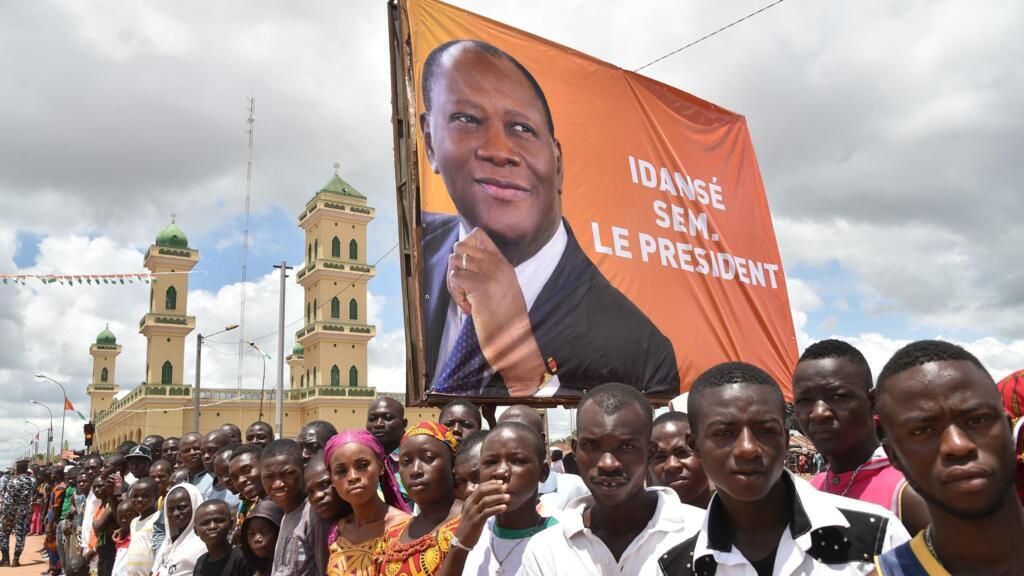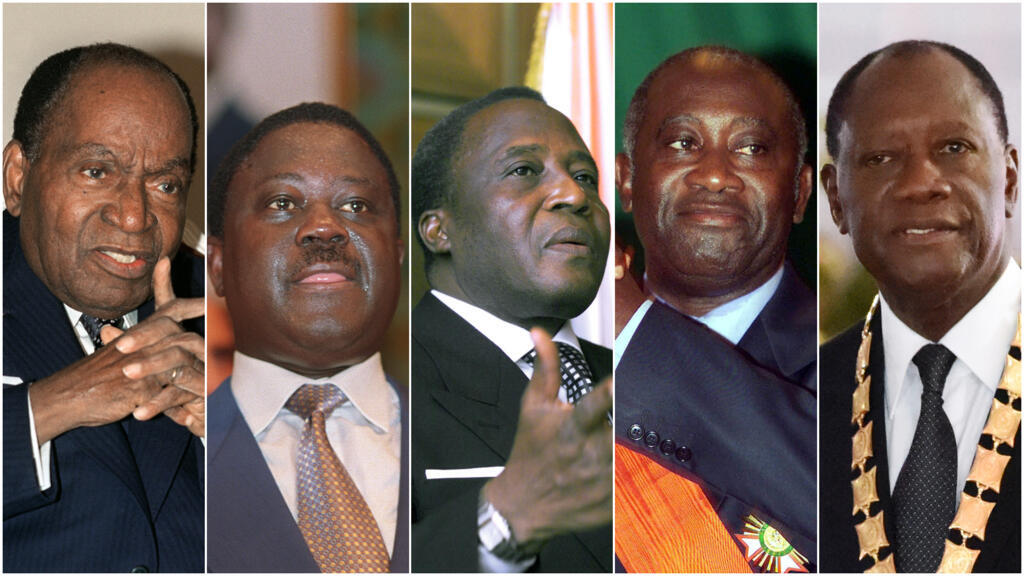
Côte d'Ivoire's presidential election campaign is taking shape, with four challengers hoping to defeat longtime incumbent Alassane Ouattara in the 25 October vote – but no candidates from the country's two main opposition parties. While analysts say the run-up has so far been peaceful, some fear that young voters in particular are disengaging from politics, in response to previous election violence.
Ouattara, 83, has been in power since 2011 and changed the constitution in 2016 to remove presidential term limits.
Four candidates are standing against him, having been ruled eligible by the country's constitutional court: former ministers Jean-Louis Billon, Ahoua Don Mello and Henriette Lagou, and Simone Gbagbo, who is a former first lady.
Neither of the main opposition parties are in the race, after the court disqualified several other candidates including former president Laurent Gbagbo – Simone's ex-husband – and Tidjane Thiam, a businessman and former minister of development.
Excluded candidates have denounced the ruling as unfair and several are considering contesting it.
Meanwhile thousands of people took to the streets last month to protest the ban.
Thousands in Côte d'Ivoire protest exclusion of opposition leaders from election
Relative calm
Previous elections in Côte d'Ivoire have been fraught with unrest and clashes. When Ouattara stood for a third term in 2020, several people were killed in election violence.
Rinaldo Depagne, West Africa director at the International Crisis Group (ICG), says the situation remains remarkably calm compared to earlier campaigns.
"If you compare with what happened in 2020, mid September, the country already had a death toll of more than 15 people killed during violent protests. So this time, it is quite reassuring," he told RFI.
"We don't have any notable violence reported. The only incident was in August, an attack on a bus in Yopougon [a suburb of Abidjan]."
Several members of Laurent Gbagbo's African People's Party – Côte d'Ivoire were arrested after a public bus was set alight last month. They denied all involvement and the party slammed the arrests as politically motivated.
Human rights issues
Meanwhile, on 15 September Amnesty International launched a manifesto setting out six key priorities for the next administration.
"Over the next five years, the president should address violations of the rights to freedom of expression, association and peaceful assembly," Marceau Sivieude, Amnesty International's regional director for West and Central Africa, wrote.
"They should end forced evictions and support affected people, ensure respect for the right to truth, justice and reparation for victims of electoral violence, protect the rights of women and children and the right to a healthy environment."
The recommendations aim to provide the future president with a human rights roadmap.
"These elections offer an opportunity to strengthen respect for human rights in Côte d'Ivoire. We call on all candidates to commit to this,” Sivieude added.
Switching off
Regarding participation, Depagne says the main parties have shown "a certain sense of responsibility" in not calling for violence, yet the calm may also be a sign that voters are switching off from politics.
"Young people don't expect much from politics; they don't want to be killed or harmed for a result that won't give them a job or a better life," he said.
"So on the one hand, this is reassuring because we have so far had quite a peaceful pre-campaign... But on the other hand, people are not really involved in political life."

No presidential election since 1995 has resulted in a peaceful change of power, ICG notes in its latest report on Côte d'Ivoire.
One of the issues, according to the think tank, is that the candidates are well-known politicians who have been on the scene since the 1990s.
"In a way, I'm not sure that many Ivorians believe in them anymore," Depagne says. "The turnout could be low."
Ouattara confirms fourth term run as Ivorian opposition cries foul
Furthermore, the violence surrounding previous elections means that "politics for many people is something dangerous", according to Depagne.
"For many people, going in the street to demonstrate could be dangerous," he told RFI. "This is also why you don't see massive protests, I think."
The Ivorian government should hold formal talks with the opposition as soon as possible, the ICG recommends, while parties whose candidates have been disqualified should resist the temptation to boycott.
The election campaign officially kicks off on 10 October and will end on 23 October, two days before voting begins.







